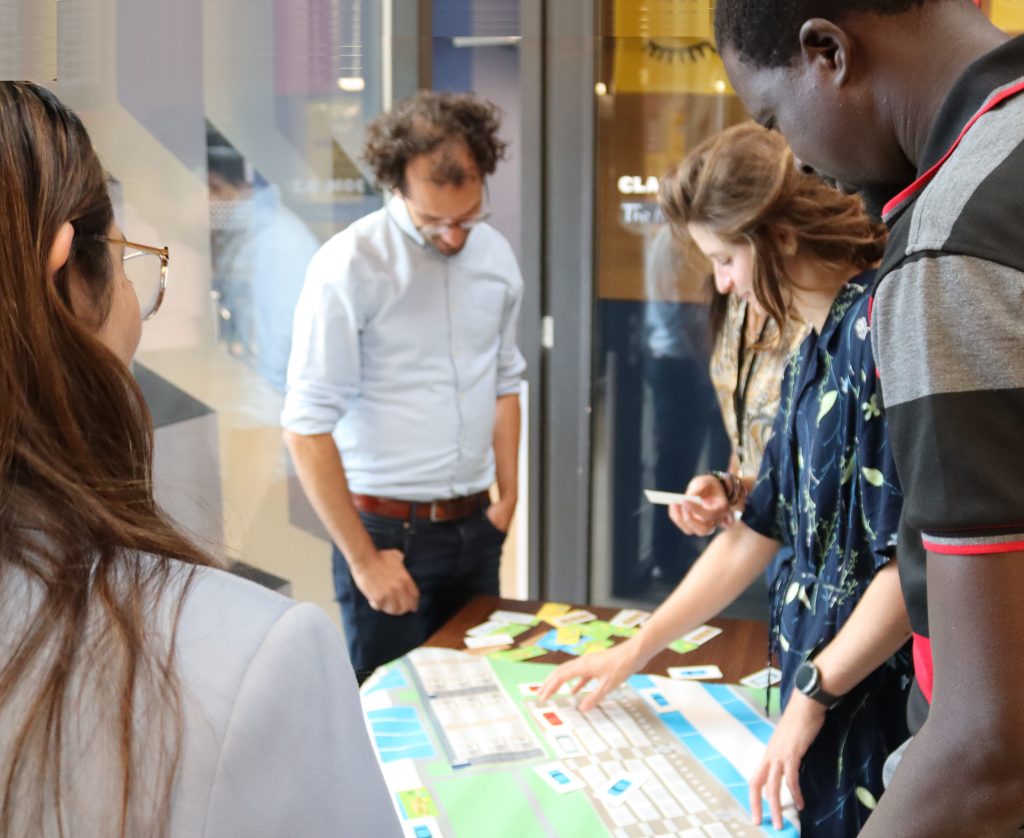How can we expect a just and fair society when corruption infiltrates everyday life, diverting resources, silencing voices, and limiting opportunities? Corruption directly affects young people by reducing their access to education, employment, and participation in decision-making. Therefore, governments, local actors and civil society are called to involving and empowering youth in the fight against corruption.

Nevertheless, young people are not just passive victims of corruption; they are also at the forefront of demanding integrity and accountability. Youth-led movements have successfully monitored government expenditures, tracked the distribution of educational supplies, and organized community discussions to raise awareness about the detrimental effects of corruption.
“Youth-led movements can push authorities to adopt legal and institutional reforms to strengthen anti-corruption frameworks. Youth also bring fresh perspectives and innovative solutions, using technology and digital platforms to reshape the anti-corruption landscape”,
stresses Aroua Ben Ammar, Public Service Advisor from Tunisia, who participated in the Integrity and Anti-Corruption training in 2024. “Trust between public institutions and young people are essential pre-requisites”, she continues.
Empowering young people to become integrity leaders and equipping them with the right knowledge and tools, is one way to increase trust. Youth-driven initiatives effect real change by embedding integrity in education, fostering ethical decision-making, or promoting transparency through public dialogue and policy engagement.
Strengthening youth leadership through localised initiatives 
Many alumni of The Hague Academy’s course on Integrity and Anti-Corruption – from Tunisia, Jordan, North Macedonia, Uganda, Burundi, Rwanda, Kenya, Albania, and more – become changemakers; actively working on initiatives to combat corruption. Some of their initiatives include:
- Developing integrity education materials for high schools and universities to raise awareness of corruption’s impact on society.
- Integrating integrity and ethical values (such as responsibility and honesty) into standard curricula from an early age to prevent unethical behavior before it becomes normalised.
- Providing ethical leadership training for young people to build their capacity to stand up against corrupt practices.
- Involving youth in decision-making and public policy processes to enhance transparency and accountability, ensuring their perspectives are included
- Promoting role models who act with integrity and inspire others to do the same. Public figures who exemplify ethical behavior can have a lasting impact on young people’s values and decision-making.
- Educating on moral dilemmas, encouraging youth to analyse ethical challenges and consider the impact of their decisions. Understanding ethical complexity helps young people develop a moral compass.
- Organising “integrity cafés,” informal events where youth from diverse backgrounds can discuss societal issues and understand the importance of integrity in preventing corruption.
Marianna Tsirelson, Senior Programme Manager and Integrity Officer at the Hague Academy reflects on more than seven years of delivering training on integrity and anti-corruption and seeing the impact young leaders have:
Seeing progress in the implementation of integrity promotion by young change-makers is both inspiring and affirming. It signals that their efforts—often met with challenges—are making a tangible difference in fostering ethical leadership, accountability, and transparency.
Learning to lead with integrity
“Young change-makers who champion integrity and reject corruption are the true architects of a better future,” Marianna Tsirelson concludes. “Small but very meaningfull victories, such as increased awareness, ethical reforms, and joint action against corrupt practices, pave the way for long-term transformation.”
To empower youth, NGOs and governments professionals in the fight against corruption, The Hague Academy for Local Governance offers the course Integrity and Anti-Corruption.
In this course, we bring together different experts and practitioners to exchange experiences and learn from examples in The Netherlands and other parts of the world. Furthermore, since 2012, we organise an annual MATRA-course on Integrity of Civil Servants for government staff in EU-accession countries. The programmes focus on the prevention of corruption by developing policies that increase transparency and accountability, discussing ethical dilemmas, and fostering a culture of integrity.
Sources:
Transparency International
World Economic Forum
Our World in Data
Local Governance Integrity Principles and Standards
Transparency International – Youth and Corruption
Transparency International – Youth Engagement Strategies
Related courses
We offer a diversity of courses throughout the year. Here are several other courses you might like.

